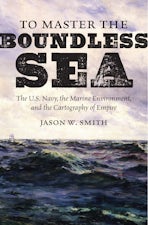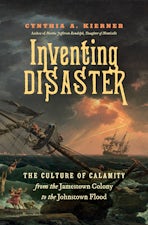Catastrophic Diplomacy
US Foreign Disaster Assistance in the American Century
By Julia F. Irwin
384 pp., 6.125 x 9.25, 8 halftones, 5 maps, notes, bibl., index
-
Paperback ISBN: 978-1-4696-7723-1
Published: January 2024 -
Hardcover ISBN: 978-1-4696-7623-4
Published: January 2024 -
E-book EPUB ISBN: 978-1-4696-7624-1
Published: November 2023 -
E-book PDF ISBN: 979-8-8908-6367-6
Published: January 2024
Buy this Book
- Paperback $29.95
- Hardcover $99.00
- E-Book $22.99
For Professors:
Free E-Exam Copies
Deftly weaving together diplomatic, environmental, military, and humanitarian histories, Irwin tracks the rise of US disaster aid as a tool of foreign policy, showing how and why the US foreign policy establishment first began contributing aid to survivors of international catastrophes. While the book focuses mainly on bilateral assistance efforts, it also assesses the broader international context in which the US government and its auxiliaries operated, situating their humanitarian responses against the aid efforts of other nations, empires, and international organizations. At its most fundamental level, Catastrophic Diplomacy demonstrates the importance of international disaster assistance—and humanitarian aid more broadly—to US foreign affairs.
About the Author
Julia F. Irwin is professor of history at Louisiana State University.
For more information about Julia F. Irwin, visit
the
Author
Page.
Reviews
"A comprehensive and critical examination of an important yet under-explored aspect of US international relations. Irwin’s work, rich in detail and scope, represents an invaluable resource not only for historians of US American foreign policy but also for current practitioners and policymakers in the field of international aid and diplomacy . . . . [a] sweeping study . . . . a significant scholarly achievement."—Not Even Past
"A cautionary tale of constant pitfalls in provisioning aid, as well as humble suggestions for a better path through the calamities of the future—especially as once-a-century disasters become ever more frequent in our climate crisis."—Megan Black, author of The Global Interior: Mineral Frontiers and American Power
"Far beyond its explicit arguments about disaster aid, this book stands as a model of how to think and write about contingency in history."—Jacob Remes, author of Disaster Citizenship: Survivors, Solidarity, and Power in the Progressive Era
"In a world of cascading climate change, Catastrophic Diplomacy could not be more timely. This important study explores the multiple factors that shape both the arrival of and international responses to, natural disasters. Irwin's attention to both the US state and humanitarian organizations is exemplary, as is her analysis of how feelings of sympathy for distant suffering and hard calculations of state interest have been intertwined. Covering more than one hundred years, with breadth of reach and impressive analytical precision, Irwin's book will become a classic."—Melani McAlister, author of The Kingdom of God Has No Borders: A Global History of American Evangelicals
"In her wide-ranging and comprehensive Catastrophic Diplomacy, Julia Irwin shows how US and international organizations sought to aid victims of natural disasters all around the world. The book is a valuable contribution to our understanding of the United States' changing global role across the twentieth century."—David C. Engerman, author of The Price of Aid: The Economic Cold War in India
"US disaster assistance has been around for over a century, running alongside and crossing paths with humanitarian assistance. Never one to let a serious crisis go to waste, the United States determined that its strategic, political, and economic interests would decide whose suffering mattered. An important story well told."—Michael Barnett, author of Empire of Humanity: A History of Humanitarianism




